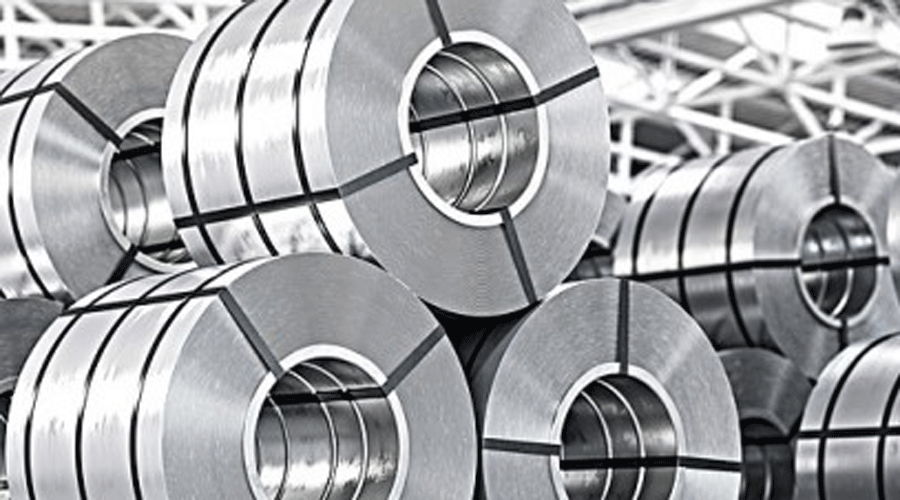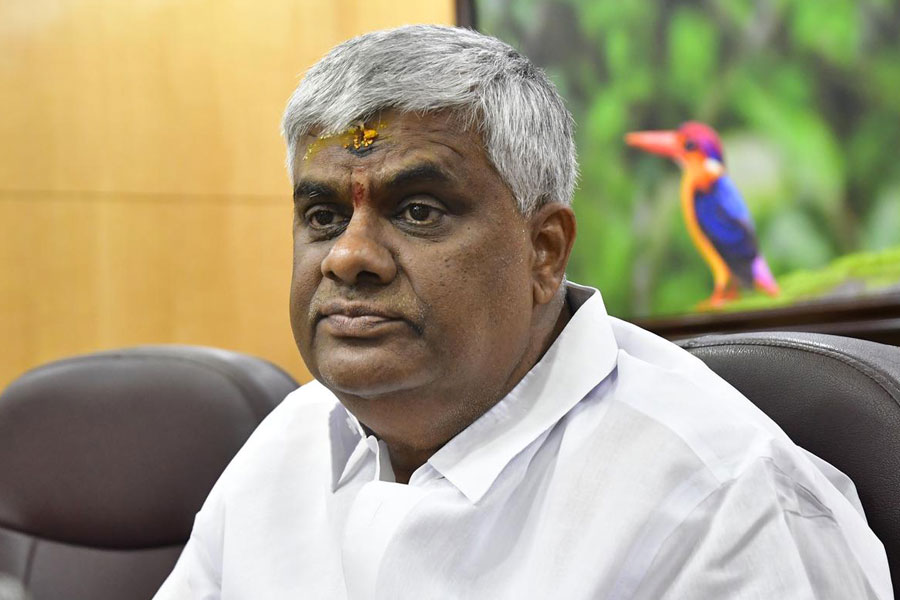The Centre’s decision to reverse the export duty on steel and iron ore may boost sentiments in the market and reduce the downside risk in steel prices.
After months of pleading by the producer industry, the Modi government late last night withdrew the 15 per cent duty on export of steel, 45 per cent duty on iron ore pellet, 50 per cent duty on low grade iron ore (less than fe 58 per cent), while lowering duty on high grade (above fe 58 per cent) to 30 per cent.
These duties were imposed on May 22 to check soaring prices in the country and to increase availability in the domestic market. The decision had the desired impact. Benchmark steel prices (hot rolled coil) fell from a high of Rs 69,830 a tonne (ex-Mumbai) to Rs 56,770 a tonne in October, SteelMint data shows, reflecting a drop of 18.7 per cent.
However, the correction was steeper from the all-time peak in domestic prices seen in April when HRC was sold at Rs 76,030 a tonne, following the impact of the Russia-Ukraine war which disrupted the global supply of the metal.
With the removal of the duty, large integrated steel makers are relieved that the export market has opened up again, allowing them to hedge against a scenario when domestic demand is unable to absorb the supply.
“I think it is a good move as the sector needs to have more options other than the domestic market,” T.V. Narendran, managing director and CEO of Tata Steel told The Telegraph this afternoon.
Thanking Prime Minister Modi and finance minister Nirmala Sitharaman, president of the Indian Steel Association and AMNS India CEO Dilip Oomen said, “This will re-energise and further motivate the industry to move forward with full confidence to place the steel sector on an inclusive growth path.”
His sentiment was echoed by Seshagiri Rao, joint managing director, JSW Steel, and group CFO. “We welcome and thank the government for removal of export duty on steel products. It will be a big sentiment booster to revive the domestic steel demand, particularly when the global steel demand is on the steep decline,” Rao added.
Indian steel expor ts dropped a steep 53 per cent in April-September 2022 to 5 million tonnes (mt) against almost 11 mt seen in the same period in H1FY22, SteelMint data showed.
Export of flat steel, which is mainly produced by large players, declined a substantial 44 per cent to 3.66 mt from 6.53 mt y-o-y, semis plunged 66 per cent to 1 mt compared with 3 mt and longs by a whopping 69 per cent to 0.43 mt compared with 1.40 mt in the period under review.
With four months of the fiscal remaining, steel exports are expected to look up even as the demand for the metal in the international market remains low.
Overhang on expansion
With exports duty out of the way, steel majors are unlikely to hold back on expansion plans. All major players hope to keep 10-15 per cent of their capacity for export opportunity.
“India has the potential to be a competitive exporter of steel and the industry should be encouraged to make in India not only for India but for the world,” Narendran said, underlining the competitive advantage of India which is endowed with iron ore, the basic raw material of steel.
Import duty hiked
The government has hiked the import duty on anthracite, coking coal and ferronickel — used as raw material in the steel industry, a finance ministry notification said.
Import duty on anthracite/ PCI, coking coal and ferronickel has been hiked to 2.5 per cent, while for coke and semicoke it has been raised to 5 per cent, from ‘nil’ earlier.
While increasing the export duty in May, the government had cut the steel raw material duties to nil, which has been reversed now. Industry sources said the prices of raw materials have come down in the last couple of months with a slowdown in the global economy and the industry would be able to absorb the increase in duties.
With inputs from Delhi bureau










